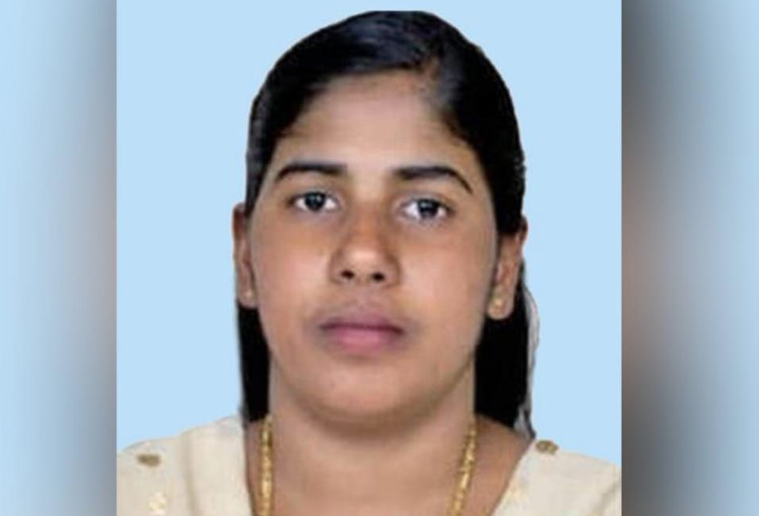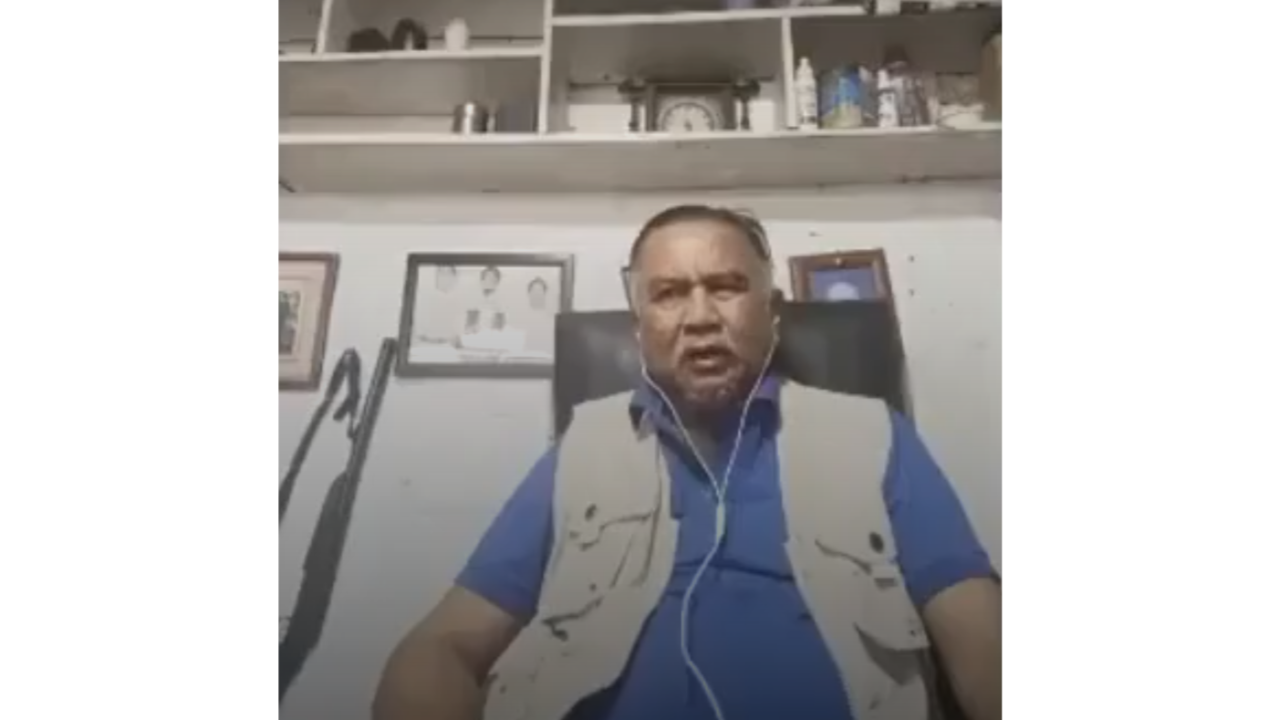Less than a week from now, Nimisha Priya, the nurse from Palakkad in Kerala accused of murdering a Yemeni in 2017, is likely be executed on July 16, 2025, in Yemen unless Indian officials manage to pull off a miracle.
Though neither the Yemeni government nor ministry of external affairs have confirmed the date of the execution, unconfirmed reports from those involved in negotiating with the Yemeni government on behalf of Nimisha have reportedly released the date.
In this backdrop, the Supreme Court today (July 10) agreed to hear the plea by the Save Nimisha Priya Action Council, an organisation fighting to save the Malayali nurse from the gallows, seeking directions to the Central government to secure her release through diplomatic efforts.
The SC will hear the petition by Save Nimisha Priya Action Council on July 14, seeking directions to the Central government to save her through diplomatic negotiations. “It is pertinent to mention that strong and timely diplomatic interventions of Indian authorities can only save the life of Ms Nimisha Priya and therefore, facilitations for effective negotiations are highly warranted,” the Council’s petition said. The apex court has asked the government to apprise it of the actions it took or could take to protect the Malayali nurse.
Who is Nimisha Priya?
Nimisha Priya hails from Kollengode in Palakkad district, Kerala, born to daily wage laborers and raised under trying conditions. She trained as a nurse and, like many others seeking better prospects, moved to Yemen in 2008 for work. She married Tomy Thomas in 2011, and the couple returned to Sana’a, Yemen. Their daughter was born in December 2012.
Due to financial struggles and the prevailing political situation in the region, her husband and daughter returned to India in 2014, while Nimisha stayed back to continue working and support her family. While her early days in Yemen involved working in various hospitals, she decided to open her own clinic driven by a desire to get better in life.
As the Yemeni law required a local business partner for foreign medical practitioners, she partnered with Talal Abdo Mahdi, a local, which ultimately led to the tragic events that unfolded, culminating in her current predicament.
According to reports, Talal Abdo Mahdi was a regular at the clinic where she previously worked. Later, they entered into a partnership, with Mahdi holding a 67 per cent share and Nimisha a 33 per cent share, a deal that was reportedly influenced by the owner of Nimisha’s previous clinic. Initially, the clinic was successful, but the partnership soon soured. Nimisha alleged that Mahdi began to withhold income from her. When she confronted him, she claimed he subjected her to physical abuse, financial exploitation, and threats. Mahdi reportedly forged documents to claim marriage with her and used a copy of her wedding photograph to support this false claim to his family and clinic staff. He also confiscated her passport, effectively trapping her in Yemen and preventing her from returning to India.
Nimisha attempted to seek help from local authorities, but her complaints of abuse and fraud reportedly led to her arrest instead of protection. Mahdi was also jailed multiple times due to Nimisha’s complaints and his drug addiction. In July 2017, in a desperate attempt to retrieve her passport and escape Yemen, Nimisha administered a sedative to Mahdi. However, the dose proved lethal, leading to his death. Following this, with the assistance of another nurse, she dismembered his body and disposed of it in a water tank, leading to her arrest and subsequent conviction.
In August 2017, Nimisha was arrested for the murder and in 2018, a Yemeni court convicted her of murder and sentenced her to death, a verdict that was upheld by the Supreme Judicial Council in November 2023 after her appeals were dismissed. This critical development has intensified global attention on her case, highlighting the intricate legal and diplomatic challenges involved.
From the early stages of the case, significant concerns have been raised regarding the fairness of Priya’s trial. Reports indicate that the proceedings were conducted entirely in Arabic, a language Nimisha Priya does not understand. Crucially, she was allegedly not provided with an interpreter or legal representation, which raises serious questions about due process and her ability to defend herself effectively in court. These procedural irregularities have been a central point of contention for her supporters.
The Indian government has been actively engaged in diplomatic efforts to prevent Priya’s execution, maintaining regular contact with Yemeni authorities and her family. However, the absence of formal diplomatic ties with the Houthi administration, which controls the region where Priya is imprisoned, has complicated these negotiations. A primary avenue for her release involves the payment of ‘diyat’ or ‘blood money’ to the victim’s family, a practice recognized under Yemeni law.
Priya’s mother, Premakumari, traveled to Yemen to facilitate these negotiations, and while funds have been raised, the process remains complex and challenging. Human rights groups and citizen-led campaigns continue to advocate for urgent intervention to save Nimisha Priya from the death penalty.
The Indian government has earlier said in Parliament that it was providing all assistance to the family of Nimisha Priya but lack of diplomatic channels with the Houthis have made negotiations difficult.

Indians on Death Row and Executed in the Middle East
Nimisha’s case is not an isolated incident. A significant number of Indian nationals face the death penalty or have been executed in various Middle Eastern countries. As of March 2025, reports indicate that approximately 49 Indians are on death row across eight countries, with the highest numbers in the UAE (25) and Saudi Arabia (11-12). Other countries include Kuwait (3), Malaysia (6), Indonesia (1), Qatar (1), the US (1), and Yemen (1, Nimisha Priya).
Recent executions include three Indian nationals in the UAE in March 2025. Shahzadi Khan was executed for the killing of a child, while Muhammed Rinash Arangilottu and Muraleedharan Perumthatta Valappil were executed for murder. In 2024, Saudi Arabia executed three Indians among a record 101 foreigners, though the specific crimes for these individuals were not detailed in the reports.
Historically, drug-related offenses have been a common reason for executions of foreign nationals in Saudi Arabia. These cases highlight the severe legal consequences faced by Indian citizens abroad, often due to complex legal systems, lack of proper legal representation, and the application of local laws that differ significantly from those in India.
Laws and Legal Proceedings Leading to the Death Penalty in the Middle East
Legal systems in many Middle Eastern countries, including those in the Gulf region and Yemen, are heavily influenced by Sharia (Islamic law). This often means that capital punishment is a legal penalty for a wide range of offenses, which can vary by country but commonly include murder, drug trafficking, terrorism, and other serious crimes. While Sharia law sets stringent conditions for the application of the death penalty, its interpretation and implementation can differ significantly across jurisdictions.
The judicial process typically involves a multi-tiered court system. For instance, in the UAE, cases involving the death penalty go through a three-tiered review: the Court of First Instance, followed by an Appeal Court, and finally the Supreme Court. In Saudi Arabia, the legal system also relies on Sharia law, with capital offenses categorized into Hudud (fixed punishments for specific crimes), Qisas (retributive justice, allowing the victim’s family to seek execution or blood money), and Ta’zir (discretionary punishments). The lack of transparency in some judicial processes, coupled with language barriers and inadequate legal representation for foreign nationals, often raises concerns about fair trial standards.
One notable aspect, as seen in Nimisha Priya’s case, is the concept of ‘diyat’ or ‘blood money.’ This allows the victim’s family to pardon the offender in exchange for financial compensation, thereby commuting the death sentence. However, the successful negotiation and payment of diyat can be complex, requiring the consent of all heirs of the victim and often involving significant sums of money. The varying legal interpretations, political landscapes, and diplomatic relations further complicate the situation for foreign nationals facing capital punishment in the region.
Escaping Death Penalty Through Blood Money
The concept of ‘diyat’ or ‘blood money’ has offered a lifeline to several Indian nationals facing the death penalty in Middle Eastern countries. This Islamic legal provision allows the victim’s family to pardon the offender in exchange for financial compensation, thereby commuting the death sentence. While the exact number of Indians who have benefited from this provision is not always officially publicized, several high-profile cases illustrate its application.
One notable instance involved 17 Indian nationals who were on death row in the UAE for the murder of a Pakistani national in 2009. They were pardoned after a ‘blood money’ payment was made to the victim’s family. Another significant case saw a Dubai-based businessman reportedly paying approximately 10 million UAE Dirhams (around $2.72 million USD) to save 78 Asian men, including Indians, from execution in the UAE for murder convictions. These cases highlight the crucial role that ‘blood money’ can play in saving lives, though the process often involves complex negotiations and substantial financial contributions, sometimes raised through crowdfunding campaigns and charitable organizations.


